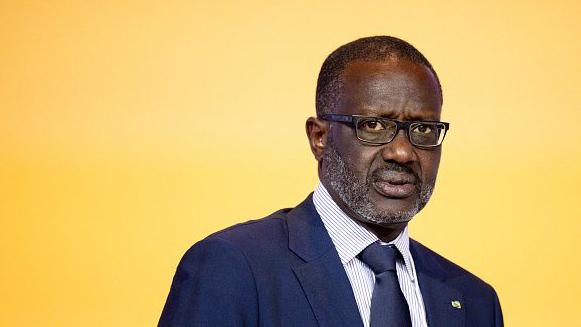Ivory Coast’s Political Landscape Faces Uncertainty Amid Tidjane Thiam’s Citizenship Controversy
In Ivory Coast, the intersection of international business and local politics has proven to be a challenging battleground, exemplified by Tidjane Thiam’s recent setback as he seeks the presidency of the nation renowned for its cocoa production and vibrant football culture. The former CEO of notable financial institutions is amid a citizenship crisis that casts doubt on his candidacy for the upcoming elections.
Thiam’s aspirations for presidency suffered a blow on April 22, when a judicial ruling declared that he had forfeited his Ivorian citizenship by acquiring French nationality decades prior. The court’s decision arrived just months ahead of the presidential elections scheduled for October, leaving Thiam in a precarious position as he navigates the complexities of Ivorian politics.
Political Background and Current Challenges
After returning to Ivory Coast in 2022 following over two decades in global finance, Thiam quickly emerged as a potential successor to 83-year-old President Alassane Ouattara, who serves his third term. With Thiam hailing from a prominent family and being closely related to the nation’s first president, his political pedigree seemed set to rival that of Ouattara.
In the wake of the passing of Henri Konan Bédié, the former opposition leader, Thiam was named the Democratic Party of Ivory Coast’s candidate on April 17, 2025. His centrist approach and technocratic experience positioned him as a credible alternative to the incumbent, especially with a growing discontent among the populace towards the political establishment.
| Candidate | Political Party | Status |
|---|---|---|
| Tidjane Thiam | Democratic Party of Ivory Coast | Citizenship Disqualified |
| Laurent Gbagbo | Ivorian Popular Front | Disqualified |
| Guillaume Soro | Generational & People’s Emerging Party | Disqualified |
| Charles Blé Goudé | PPA-CI | Disqualified |
Identity Politics and Its Implications
The ruling regarding Thiam’s citizenship has opened a Pandora’s box of identity politics reminiscent of the tumultuous environment in Ivory Coast during the late 20th century. The complications surrounding citizenship laws raise concerns regarding political participation, especially since three opposition figures have already been excluded due to legal issues stemming from past civil conflicts.
The fact that Thiam’s eligibility is now questioned reflects ongoing tensions within Ivorian society, where identity and citizenship remain hotly contested issues. Ivorian law restricts dual nationality, which has resulted in a fragmented political landscape with widespread disenchantment among voters, particularly the youth who make up a majority of the population.
Looking Ahead
As the countdown to the elections continues, the political climate remains fraught with uncertainty. The possibility of political negotiations or public pressure inducing a shift in the courts’ decision provides a glimmer of hope for Thiam’s supporters. Questions also linger regarding whether Ouattara, if he chooses not to seek reelection, will intervene in any potential compromise.
With the backdrop of regional shifts in governance and a populace hungry for change, the unfolding saga of Tidjane Thiam may set a precedent for how citizenship and identity politics influence the future of democracy in Ivory Coast.


